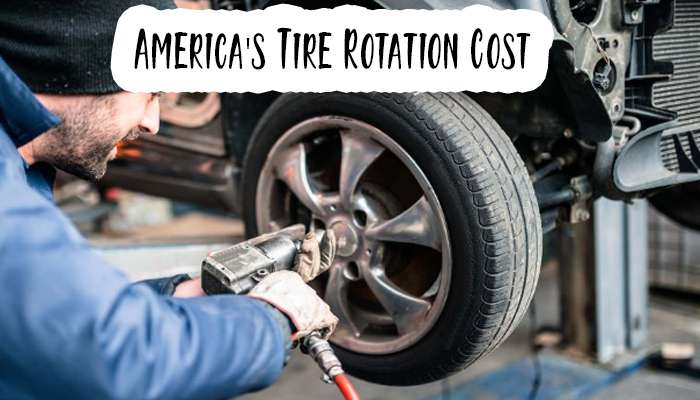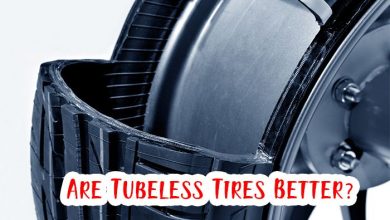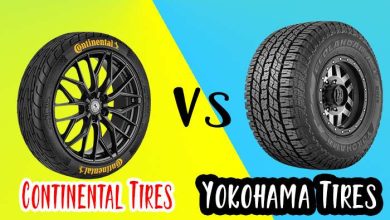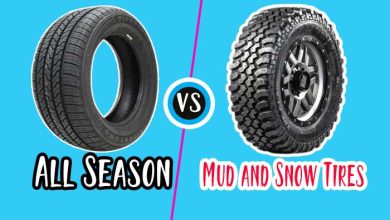Can You Drive Snow Tires All Year? Experts Guide
Rev your engines and brace yourselves, tire enthusiasts! Today, we’re embarking on a snowy expedition into the tire universe.
The question is on everyone’s mind: can you confidently roll with snow tires throughout the year? Get ready to unlock the treaded secrets and explore the icy terrain of tire decisions.
This journey promises twists, turns, and a touch of tire humor – so fasten your seatbelts for a ride like no other!
Read Also: Can You Drive on Low Tire Pressure?
Characteristics of Snow Tires
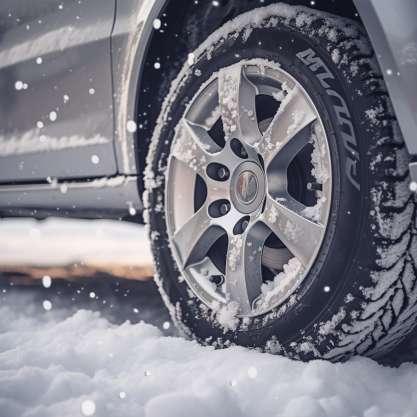
Snow tires are not your regular rubber companions; they’re designed with unique features to conquer winter’s frosty challenges. Let’s take a closer look:
- Deep Tread Patterns: Snow tires boast deep grooves, ensuring better traction on slippery surfaces.
- Siped Blocks: Tiny slits called sipes create additional biting edges, enhancing grip on icy roads.
- Soft Rubber Compounds: Snow tires use softer rubber to remain pliable in frigid temperatures for superior performance.
Benefits of Snow Tires

Why bother with specialized snow tires? Here’s why they’re a winter game-changer:
- Enhanced Traction: The deep treads and siping technology ensure a solid grip on snow and ice.
- Improved Braking: Soft rubber compounds aid in responsive braking, a critical factor in icy conditions.
- Better Handling: Snow tires provide optimal control, reducing the chances of skidding or sliding.
Read More: Can You Drive on a Flat Tire?
All-Season Tires vs. Snow Tires
Now, let’s roll into the comparison between all-season and snow tires. While all-season tires offer versatility, there might be better matches for winter wonderlands.
Let’s break it down in a tire-to-tire faceoff:
| Criteria | All-Season Tires | Snow Tires |
|---|---|---|
| Tread Design | Moderate tread depth | Deep grooves and sipes |
| Rubber Compound | Harder rubber for durability | Softer rubber for cold-weather flexibility |
| Winter Performance | Limited traction on snow and ice | Exceptional grip and control in winter |
| Ice Braking Capability | Reduced effectiveness | Enhanced braking on icy surfaces |
Choosing between the two depends on your local climate and driving habits. However, snow tires take the lead when winter’s chill sets in.
Driving Conditions and Geographic Factors

Now, let’s talk geography. If you’re in the sunny South, year-round driving with snow tires might be unnecessary.
However, it’s a different story for those of us in the snowy North. It’s not just about the temperature; it’s about the road conditions.
Consider the following:
- Average Temperature: If you’re in an area where winter temperatures stay consistently below 45°F (7°C), snow tires are a wise investment.
- Annual Snowfall: The more snow, the more you’ll appreciate the benefits of snow tires.
- Road Maintenance: Areas with limited snow plowing might require snow tires for an extended period.
Read More: Can R And R Tires Send You To Jail?
Can You Drive Snow Tires All Year?

Technically, you can drive on snow tires all year round, but it’s generally not recommended. Here’s why:
- Performance: Snow tires have a softer rubber compound that excels in cold weather and snowy/icy conditions. However, this softness makes them wear out much faster in warm weather, especially on dry pavement. You can expect to replace them two to three times sooner than all-season tires.
- Handling: The aggressive tread pattern of snow tires is designed for grip in snow and ice, but it can make them noisy and less responsive on dry roads. You may experience reduced handling and braking performance.
- Fuel efficiency: Snow tires have higher rolling resistance, which creates more friction with the road and decreases your fuel economy by about 5-10%.
So, while driving on snow tires year-round is possible, it could be better. You’ll sacrifice tread life, handling, and fuel efficiency.
It’s generally best to switch to all-season or summer tires when the weather warms up, and there’s no risk of encountering snow or ice.
Here’s a quick breakdown of when to use each type of tire:
- Snow tires: Use in winter, especially when snow or ice is on the roads.
- All-season tires: A good compromise for most drivers in areas with mild winters. They offer decent performance in warm and cold weather conditions, but snow tires in winter or summer tires in summer are better.
- Summer tires: Provide the best performance in warm and dry weather conditions. They offer superior handling and braking but have no grip in snow or ice and should not be used in winter.
Snow Tire Maintenance and Longevity

Extend the life of your snow tires with these maintenance tips:
- Regular Inspections: Check for uneven wear and tear and address any issues promptly.
- Proper Storage: When not used, store snow tires in a cool, dry place away from direct sunlight.
- Rotation: Rotate tires regularly to ensure even wear and prolong their lifespan.
Remember these tips, and your snow tires will be ready to tackle the next winter season with gusto.
Conclusion
As we park our journey through the intricate world of snow tires, I encourage fellow tire enthusiasts to share their experiences and insights.
Whether you’re a seasoned driver or a tire novice, the road is always open for spirited discussions on the art and science of tires. Let’s keep the conversation rolling!
Glossary
- Traction: The grip between the tire and the road surface.
- Siping: Small slits on the tire surface that enhance grip on slippery surfaces.
- TLC: Tender Loving Care is essential for maintaining the longevity of your tires.
